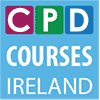CPD or Continuing Professional Development is education with the aim of earning or maintaining professional qualifications and credentials to enhance workplace skills and enable career progression. It has been described as intensive and collaborative, ideally incorporating an evaluative stage. There are a variety of approaches to professional development, including consultation, coaching, communities of practice, lesson study, mentoring, reflective supervision and technical assistance.
A wide variety of people, such as teachers, administrators, health care professionals, solicitors, accountants and engineers engage in professional development. Individuals may participate in professional development because of an interest in lifelong learning, a sense of moral obligation, to maintain and improve professional competence, to enhance career progression, to keep abreast of new technology and practices, or to comply with professional regulatory requirements.
Many businesses and education providers have professional development requirements for staff. Other professions such as nursing, have to participate in formal and informal professional development (earning Continuing Education Units, or CEUs) in order to maintain professional registration.
Professional development opportunities can range from a single workshop to a semester-long academic course, to services offered by a medley of different professional development providers and varying widely with respect to the philosophy, content, and format of the learning experiences. Some examples of approaches to professional development include:
- Case Study Method – The case method is a teaching approach that consists in presenting the students with a case, putting them in the role of a decision maker facing a problem (Hammond 1976).
- Certification – to assess a professional and evaluate the different competencies based on a given set of standards required in the sector employed.
- Consultation – to assist an individual or group of individuals to clarify and address immediate concerns by following a systematic problem-solving process.
- Coaching – to enhance a person’s competencies in a specific skill area by providing a process of observation, reflection, and action.
- Communities of Practice – to improve professional practice by engaging in shared enquiry and learning with people who have a common goal
- Lesson Study – to solve practical dilemmas related to intervention or instruction through participation with other professionals in systematically examining practice
- Mentoring – to promote an individual’s awareness and refinement of his or her own professional development by providing and recommending structured opportunities for reflection and observation
- Reflective Supervision – to support, develop, and ultimately evaluate the performance of employees through a process of inquiry that encourages their understanding and articulation of the rationale for their own practices
- Technical Assistance – to assist individuals and their organisation to improve by offering resources and information, supporting networking and change efforts

